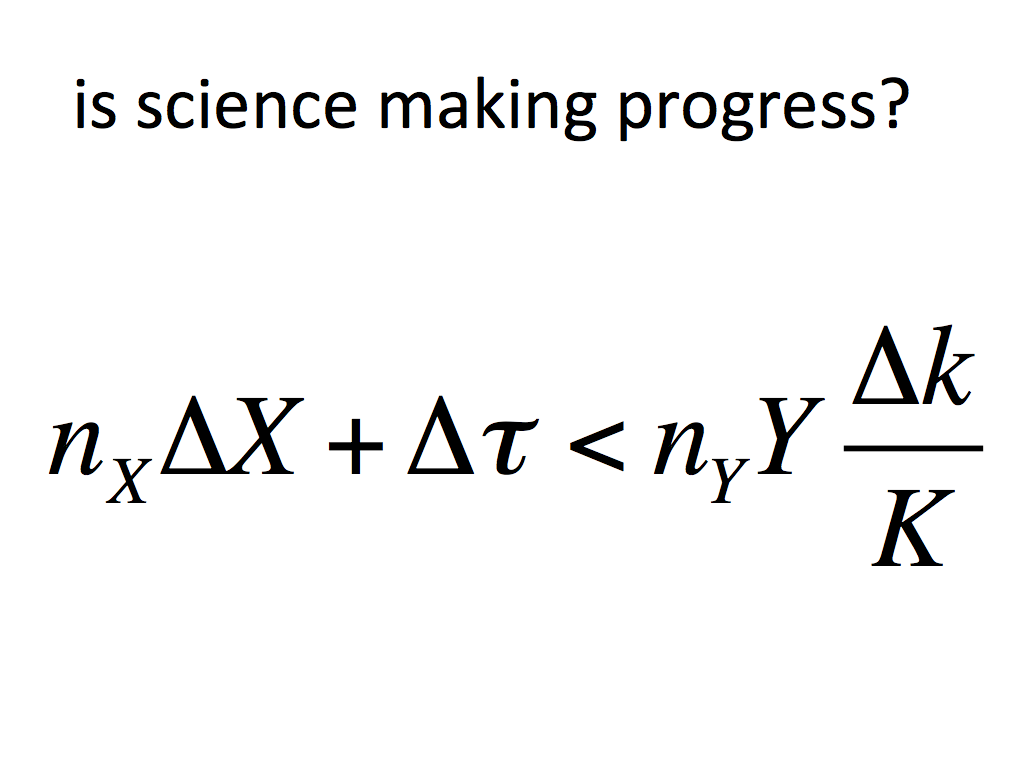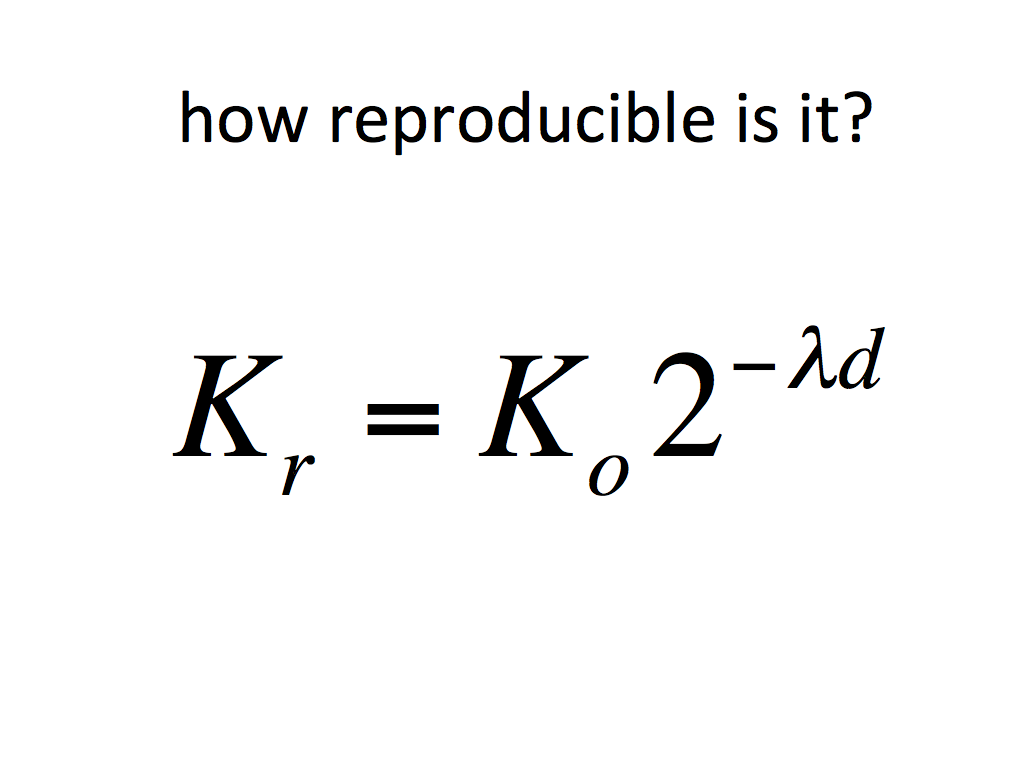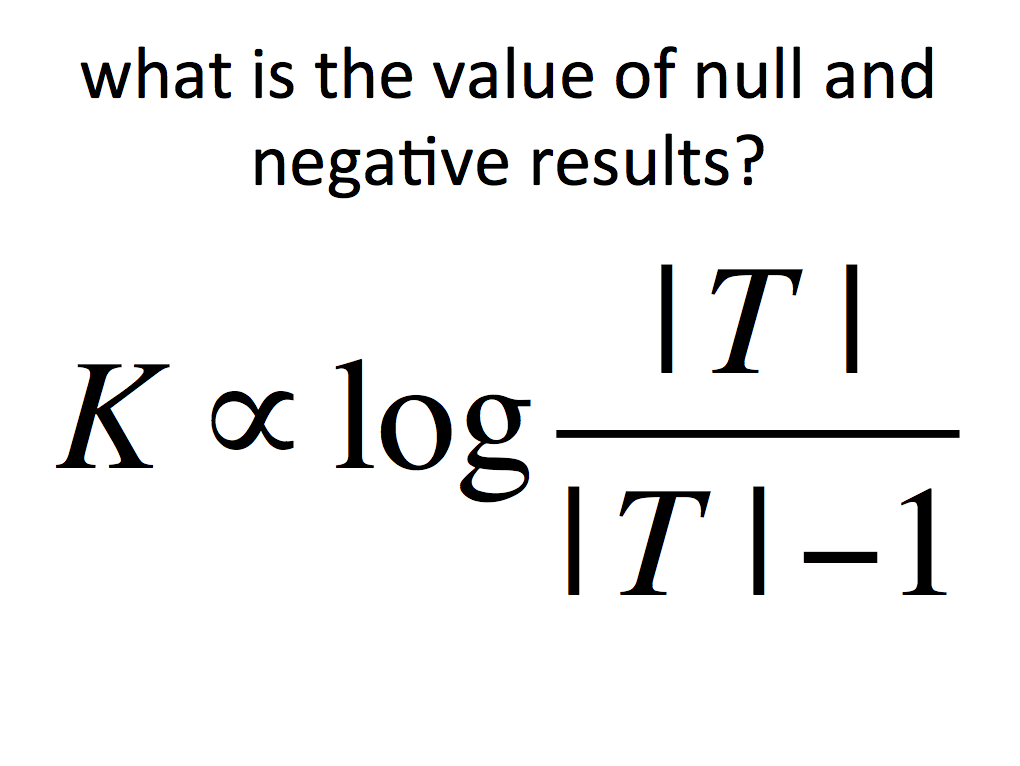Daniele Fanelli






Meta-research
- Fanelli, D. (2025)Behind the scenes of scientific fraud. Science - doi.org/10.1126/science.aea5217
- Fanelli, D., Tan, P. B., Amaral, O. B. & Neves, K., (2025)A metric of knowledge as information compression reflects reproducibility predictions for biomedical experiments. Royal Society Open Science - doi.org/10.1098/rsos.241446
- Bartos F, Maier M, Wagenmakers EJ, Nippold F, Doucouliagos H, Ioannidis JPA, Otte WM , Sladekova M, Deresssa TK, Bruns SB, Fanelli D, Stanley TD (2024)Footprint of Publication Selection Bias on Meta-Analyses in Medicine, Environmental Sciences, Psychology, and Economics. Journal: Research Synthesis Methods - 10.1002/jrsm.1703
- Martineau S, Cristea IA, Chevance A, , Fanelli D, Naudet F (2023) Are large prospective trials on antidepressants in mental disorders seeding trials? A descriptive study of trials registered on ClinicalTrials.gov. BMJ Open - 10.1136/bmjopen-2022-062913
- Bakker C, Boughton S, Faggion CM, Fanelli D, Kaiser KA, Schneider J (2023) Reducing the residue of retractions in evidence synthesis: Ways to minimize inappropriate citation and use of retracted data. BMJ-Evidence-Based Medicine - 10.1136/bmjebm-2022-111921
- Fanelli D (2022)The "tau" of science: how to measure, study, and integrate quantitative and qualitative knowledge. MetaArXiv - 10.31222/osf.io/67sak
- Fanelli D, Tan PD, Amaral OB, Neves K (2022) A metric of knowledge as information compression reflects reproducibility predictions in biomedical experiments. MetaArXiv - 10.31222/osf.io/5r36g
- Fanelli D, Schleicher M, Fang FC, Casadevall A, Bik EM (2021) Are individual and institutional predictors of misconduct modulated by national publication incentives policy? Results of a matched-control analysis of problematic image duplications. PloS ONE - 10.1371/journal. pone.0255334
- Fanelli D and Moher DM (2019) What difference might retractions make? An estimate of the epistemic impact of retractions on recent meta-analyses. bioRxiv - doi.org/10.1101/734137
- Fanelli D (2019) A theory and methodology to quantify knowledge. Royal Society Open Science - doi.org/10.1098/rsos.181055
- Tatsioni A, Karassa FB, Goodman SN, Zarin DA, Fanelli D, Ioannidis JPA (2019) Lost Evidence From Registered Large Long-Unpublished Randomized Controlled Trials: A Survey. Ann Intern Med. - 10.7326/M19-0440
- Fanelli D (2018) Is science really facing a reproducibility crisis, and do we need it to? PNAS –doi.org/10.1073/pnas.1708272114
- Fanelli D, Costas R, Fang FC, Casadevall A, Bik EM (2018) Testing hypotheses on risk factors for scientific misconduct via matched-control analysis of papers containing problematic image duplications. Science and Engineering Ethics - doi.org/10.1007/s11948-018-0023-7
- Fanelli D, Ioannidis JPA, Goodman SN (2018) Improving the integrity of published science: an expanded taxonomy of retractions and corrections. European Journal of Clinical Investigation – 10.1111/eci.12898
- Naudet F, Sakarovitch C, Janiaud P, Cristea I, Fanelli D, Moher D, Ioannidis JPA (2018) Data sharing and reanalysis of randomized controlled trials in leading biomedical journals with a full data sharing policy: survey of studies published in The BMJ and PLOS Medicine. BMJ - 10.1136/bmj.k400
- Fanelli D, Costas R, Fang FC, Casadevall A, Bik EM (2017). Why do scientists fabricate and falsify data? A matched-control analysis of papers containing problematic image duplications. bioRxiv - doi.org/10.1101/126805
- Fanelli D, Costas R, Ioannidis JPA (2017) Meta-assessment of bias in science. PNAS - 10.1073/pnas.1618569114
- Hosseini M, Hilhorst M, de Beaufort I, Fanelli D (2017) Doing the Right Thing: A Qualitative Investigation of Retractions Due to Unintentional Error. Science and Engineering Ethics - 10.1007/s11948-017-9894-2
- Goodman S, Fanelli D, Ioannidis JPA (2016) What does reproducibility mean? Science Translational Medicine - 10.1126/scitranslmed.aaf5027
- Fanelli D (2016) Set up a 'self-retraction' system for honest errors. Nature -
- Fanelli D & V Larivière (2016) Scientists' individual publication rate has not increased in a century. PLoS ONE - 10.1371/journal.pone.0149504
- McCrary J, Christensen G & Fanelli D (2016) Conservative Tests under Satisficing Models of Publication Bias. PLoS ONE -10.1371/journal.pone.0149590
- Fanelli D & Larivière V (2015). Are scientists really publishing more? Proceedings of the15th International Society of Scientometrics and Informetrics Conference, Istanbul, Turkey.
- 2. Ioannidis JPA, Fanelli D, Drake Dunne D, Goodman SN (2015). Meta-research: Evaluation and improvement of research methods and practices. PLoS Biology -DOI: 10.1371/journal.pbio.1002264
- Fanelli D, Costas R and Larivière V (2015). Misconduct Policies, Academic Culture and Career Stage, Not Gender or Pressures to Publish, Affect Scientific Integrity. PLoS ONE - DOI:10.1371/journal.pone.0127556
- Fanelli D (2015) We need more research on causes and consequences, as well as on solutions. Addiction - 10.1111/add.12772
- Pupovac V & Fanelli D (2015) Scientists admitting to plagiarism: a meta-analysis of surveys. Science and Engineering Ethics - 10.1007/s11948-014-9600-6
- Yu B & Fanelli D (2014) Classifying Negative Findings in Biomedical Publications. Proceedings of the BioNLP 2014, Workshop on Biomedical Natural Language Processing.
- Fanelli D (2014) Reply to de Winter and Dodou (2014): Growing bias and the hierarchy are actually supported, despite different design, errors, and disconfirmation-biases. Peer J - commentary. (non peer-reviewed) This is the original pre-print the comment replies to.
- Fanelli D (2014) Publishing: rise in retractions is a signal of integrity. Nature - doi:10.1038/509033a
- Fanelli D & Ioannidis JPA (2014) Re-analyses actually confirm that US studies may overestimate effect sizes in softer research. PNAS - DOI: 10.1073/pnas.1322565111
- Fanelli D (2013) Why growing retractions are (mostly) a good sign. PLoS Medicine - DOI: 10.1371/journal.pmed.1001563
- Fanelli D & Ioannidis JPA (2013) US studies may overestimate effect sizes in softer research. PNAS - DOI:10.1073/pnas.1302997110
- Fanelli D & Glanzel W (2013) Papers published in PNAS reflect the Hierarchy of the Sciences. Proceedings of the 14th ISSI Conference (International Society for Scientometrics and Infometrics), Vienna, AT, 2013
- Fanelli D & Glanzel W (2013) Bibliometric evidence for a Hierarchy of the Sciences. PLoS ONE - DOI:10.1371/journal.pone.0066938
- Fanelli D (2013) Only reporting guidelines can save (soft) science. European Journal of Personality 27(2): 124
- Fanelli D (2013) Redefine misconduct as distorted reporting.Nature - DOI:10.1038/494149a
- Fanelli D, Sydnes LK, Ducharme H, Bullock M, Comstock G, Smith C, de Melo-Martin I, Zimmerman S, and Frankel M (2013) Societal consideration as willingness to dialogue - A commentary to Singapore Statement point n. 14. Proceedings of the 3rd World Conference on Research Integrity.
- Fanelli D and Glanzel W (2012) A Bibliometric test of the Hierarchy of the Sciences: preliminary results. Proceedings of the 17th STI Conference p 452-453
- Fanelli D (2012) When East meets West…does bias increase? A preliminary study on South Korea, United States and other countries. Proceedings of the 13th COLLNET Meeting.
- Fanelli D (2013) Positive results receive more citations, but only in some disciplines. Scientometrics - DOI:10.1007/s11192-012-0757-y
- Fanelli D (2012) Any publicity is better than none: newspaper coverage increases citations, in the UK more than in Italy. Scientometrics - DOI:10.1007/s11192-012-0925-0
- Fanelli D (2012) Negative results are disappearing from most disciplines and countries.Scientometrics - DOI:10.1007/s11192-011-0494-7
- Fanelli D (2010) Do pressures to publish increase scientists' bias? An empirical support from US states data. PLoS ONE - DOI:10.1371/journal.pone.0010271
- Fanelli D (2010) "Positive" results increase down the Hierarchy of the Sciences. PLoS ONE - DOI:10.1371/journal.pone.0010068
- Fanelli D (2009) How many scientists fabricate and falsify research? A systematic review and meta-analysis of survey data. PLoS ONE - DOI:10.1371/journal.pone.0005738
Book chapters
- Fanelli D (2022) Is the narrative of a crisis empirically supported? In: Jussim L, Krosnik J eds. Research Integrity in the Behavioural Sciences. Oxford Univ. Press.
- Fanelli D (2020) Institutional pressures to publish: what effects do we see?. in: Mario Biagioli & Alexandra Lippman eds. Gaming the Metrics. MIT press.
- Fanelli D (2011) The black, the white and the grey areas - towards an international and interdisciplinary definition of scientific misconduct. Pp. 77-87 in: Nick Steneck & Tony Meyer eds. Promoting Research Integrity on a Global Basis. World Scientific press.
Policy reports
- EU Mutual Learning Exercise on Research integrity (2019) Author of Report 2 (Incentives) and 4 (Training and Education). with input from Research Integrity Officers of 14 EU countries. Prepared for the European Commission, Directorate-General for Research and Innovation.
- Linee guida del CNR per l'integrità nella ricerca (2015) (CNR's Guidelines for Research Integrity) co-athored with Cinzia Caporale and input from the CNR Ethics Committee
- Honesty, Accountability and Trust: Fostering Research Integrity in Canada (2010) co-authored with the Expert Panel on Research Integrity, Council of Canadian Academies
Evolutionary biology
- Sumner S, Kelstrup H & Fanelli D (2010) Reproductive constraints, direct fitness and indirect fitness benefits explain helping behaviour in the primitively eusocial wasp, Polistes canadensis. Proceedings of the Royal Society B, 277(1688):1721-1728.
- Turillazzi S, Fanelli D, Theodora P, Lambardi D, Ortolani I, Hashim R, Baracchi D (2008) Determinants of immature brood and nest recognition in a stenogastrine wasp (Hymenoptera Vespidae). Ethology Ecology & Evolution 20:17-33.
- Fanelli D, JJ Boomsma & Turillazzi S (2008) Subordinate wasps in colonies with low reproductive skew are more aggressive. Animal Behaviour 75:879-886.
- Fanelli D, Henshaw M, Cervo R, Turillazzi S, Queller S, &Strassmann J (2005) The social parasite wasp Polistes atrimandibularis does not form host races. J. Evolutionary Biology. 18:1362-7.
- Fanelli D, JJ Boomsma & Turillazzi S (2005) Multiple reproductive strategies in a tropical hover wasp. Behavioral Ecology and Sociobiology 58:190–199.
- Fanelli D & Turillazzi S (2005) Preliminary investigations on alternative strategies following nest loss in foundresses of Parischnogaster mellyi (Hymenoptera; Stenogastrinae). REDIA 87:215-217.
- Turillazzi S, Sledge MF, Dapporto L, Landi M, Fanelli D, Fondelli L, Zanetti P & Dani FR (2004) Epicuticular lipids and fertility in primitively social wasps (Hymenoptera Stenogastrinae). Physiological Entomology 29:464–471.
- Fanelli D, Turillazzi S & Boomsma JJ (2003) Genetic relationships among females, males and older brood in the tropical Hover Wasp Parischnogaster mellyi.� Ins. Soc. Life 5:33-37.
- Zanetti P, Dani F, Destri S, Fanelli D, Massolo A & Turillazz iS (2001) Nestmate recognition in Parischnogaster striatula (Hymenoptera Stenogastrinae), visual and olfactory recognition cues. �J. Insect Physiology 47(9):1013-1020.
- Destri S, Dapporto L, Fanelli D, Hashim R &Turillazzi S (2001) Preliminary investigations on the role of cuticular hydrocarbons in nestmate recognition of Parischnogaster mellyi. Insect Social Life 4:145-150.
- Fanelli D, Cervo R & Turillazzi S (2001) Three new host species of the social parasite Polistes atrimandibularis.� Insectes Sociaux 48:352-354.
Relevant dissemination articles
- Fanelli D (2021) Pro/Con Is there a credibility crisis in science? No. Congressional Quarterly
- Fanelli D (2012) Bad news: Science is getting too positive. AQMeNtion Edition 9.
- Fanelli D (2010) What surveys tell us about scientific frauds. BIOforum 14:16-17.